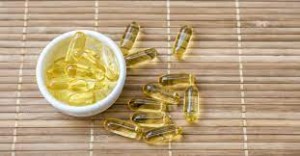“Vitamin E is an essential nutrient—meaning our bodies don’t make it, so we have to get it from the food we eat,” says Kaleigh McMordie, MCN, RDN, LD.”Vitamin E is an important antioxidant in the body and plays a key role in the health of a person’s brain, eyes, heart, and immune system, as well as preventing some chronic diseases.” Let’s look at the many benefits of vitamin E, and the Top vitamin E foods to stock up on.

One of the greatest benefits of vitamin E is its antioxidant power.”Free radicals in the body can cause damage over time, which is called oxidative stress,” McMurdy said. This form of stress can lead to chronic inflammation.”Oxidative stress is associated with many chronic diseases and conditions, including cancer, arthritis, and cognitive aging. Vitamin E helps protect the body from oxidative stress by preventing the formation of new free radicals and neutralizing existing free radicals that would otherwise These free radicals cause damage.” McMordie goes on to point out that this anti-inflammatory activity may play a role in reducing the risk of some cancers. However, research on whether vitamin E supplements and cancer are beneficial or even potentially harmful is mixed.
Just like the rest of the body, free radicals can damage the eyes over time.McMordie explained that vitamin E’s antioxidant activity may play a role in preventing macular degeneration and cataracts, two of the most common age-related eye diseases.”Vitamin E can help reduce oxidative stress on the retina and even help repair the retina, cornea, and uvea,” McMurdy said. She highlighted some studies showing that a higher dietary intake of vitamin E can reduce the risk of cataracts and potentially prevent macular degeneration. (It’s worth noting that more research is needed in this area.)

“Immune cells are highly dependent on the structure and integrity of cell membranes, which tend to decline as people age,” McMurdy said.”As an antioxidant, vitamin E may help prevent lipid peroxidation and the resulting damage to immune cell membranes, among other functions to prevent age-related immune system damage.”
McMordie highlighted a recent meta-analysis that found vitamin E supplementation reduced ALT and AST, markers of liver inflammation, in patients with NAFLD.”It has also been found to improve other parameters associated with the disease, such as LDL cholesterol, fasting blood glucose, and serum leptin, and she told us that vitamin E has been shown to be effective in reducing oxidative stress in women with endometriosis and pelvic pain markers, pelvic inflammatory disease.

Cognitive diseases such as Alzheimer’s are thought to be associated with oxidative stress that leads to neuronal cell death. Including enough antioxidants, such as vitamin E, in your diet is believed to help prevent this.”High plasma levels of vitamin E are associated with a reduced risk of Alzheimer’s disease in older adults, however, research is divided on whether high-dose vitamin E supplementation helps prevent or slow Alzheimer’s disease,” McMordie Says
Oxidation of low-density lipoprotein (LDL) and the resulting inflammation play a role in coronary heart disease.”Multiple forms of vitamin E collectively show inhibitory effects on lipid peroxidation, reducing arterial clotting, and the production of nitric oxide that relaxes blood vessels, suggesting that vitamin E may reduce the risk of coronary heart disease,” McMurdy said. .(FYI: She noted this and cautioned that some trials have shown no benefit from vitamin E supplementation, or even negative outcomes, such as a higher risk of hemorrhagic stroke.)
Clearly, many of the benefits associated with vitamin E appear to be related to achieving optimal vitamin E levels through consuming vitamin E-rich foods rather than high-dose supplements. In most cases, getting enough vitamin E from food ensures you get the benefits while reducing the risk of adverse outcomes, McMordie says.
“Vitamin E is definitely a Goldilocks nutrient, which means too little and too much can cause problems,” said Ryan Andrews, MS, MA, RD, RYT, CSCS, Chief Nutritionist and Chief Nutritionist at Precision Nutrition, the world’s largest online nutrition certifier. The consultant said the company.“Too little can cause problems with the eyes, skin, muscles, nervous system, and immunity, while too much can cause pro-oxidative effects [cell damage], clotting problems, interactions with certain medications, and may increase the risk of bleeding risk.”
Andrews emphasizes that 15 mg/day (22.4 IU) will meet the needs of most adults. A little more or less is fine, as the body is very adaptable to vitamin E.Smokers may be at higher risk of deficiency.”
Bottom line? It’s always a good idea to dive into some vitamin E-rich foods. Andrews points out that the digestive tract needs fat to absorb vitamin E (whether from food or supplements) because it is a fat-soluble vitamin.
Post time: May-16-2022




